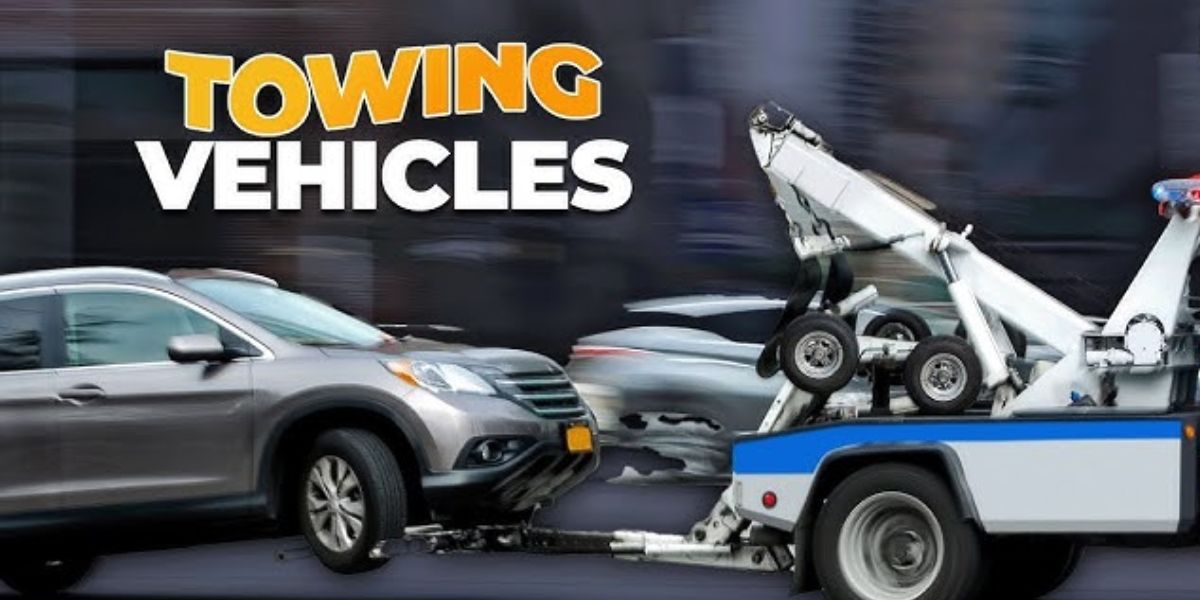Picture yourself driving down a busy roadway in Philadelphia, Pennsylvania. Your automobile suddenly starts to splutter and loses power.
You are able to pull over onto the shoulder just in time to escape getting into an accident. You are now stuck, and you call for roadside assistance, expecting that they would be able to fix the problem quickly. But what if you come back from a long wait, only to find that your car is no longer there?
You might be asking if the police in Pennsylvania are allowed to tow your car from private property, even in an emergency circumstance. As is the case with many legal matters, the answer is contingent upon the particular situation.
Pennsylvania’s Laws Regarding Towing on Private Property
It is important for both car owners and property owners to understand Pennsylvania’s towing rules regarding private property. Here is a list of situations in which towing is permitted, as well as the restrictions on police involvement.
Towing on Private Property with Permission
In Pennsylvania, there are certain situations in which it is permissible to tow a car from private property. Let’s have a look at these situations:
- Concerns for Public Safety: If your car is a safety threat on private land, the police have the authority to have it towed. This could involve circumstances such as obstructing access to emergency vehicles, spilling harmful fluids, or being out of service and parked in a hazardous area.
- Abandoned Vehicles: A car is considered abandoned if it has been parked on private property for a long time without authorization and shows symptoms of damage or inactivity, such as flat tires or expired registration. In certain situations, the owner of the property has the option to ask the police for permission to tow the vehicle.
- Blocking Access or Traffic Flow: If your car is parked in a way that prevents access to driveways, walkways, or fire escapes on private property, the police have the authority to have it towed in order to ensure that vehicles and persons may move around freely.
- Repossession by a Lienholder: If you have failed to make payments on a loan for your car, the lienholder (often a bank or financing business) has the legal authority to take it back, even if it is on private land. However, they are required to follow certain procedures that are specified in the loan agreement and state laws.
Restrictions on Police Authority on Private Property
In Pennsylvania, police do not have the right to tow vehicles from private property unless one of the above specified situations applies.
It is vital to keep this in mind. They usually respond to the property owner’s request, as the property owner has the main authority to decide who can park on their land.
The Responsibilities of Property Owners and Signage
In Pennsylvania, property owners are essential to the enforcement of parking regulations on their property. They are able to show clear signs that explain the rules of parking, towing, and where parking is allowed. These signs must be visible and meet the size and font criteria set by municipal laws.
For example, a private parking lot may contain signs that say “Violators will be towed at owner’s expense” or may have some locations that are designated for customer parking only.
If you follow these posted regulations, you will be less likely to have your automobile removed from private property.
Your Rights in Texas: What to Do If Your Car Is Towed from Private Property
What to Do if Your Vehicle is Towed from Private Property in Pennsylvania
If your car goes missing from a private property parking area in Pennsylvania, follow these steps:
- Get in touch with the towing company. The first thing you should do is ask the property owner or management if they had your automobile towed. If that is the case, they will probably give you the contact information for the towing business.
- Figure out why the vehicle is being towed: Get in touch with the towing firm and ask them why they towed your vehicle. Figuring out why the vehicle was towed (for example, if it was parked in violation of the rules or if it was considered abandoned) will help you decide what to do next.
- Negotiate Fees and Impound Costs: Towing companies usually charge for both towing and storage. Be ready to pay a fair price to get your automobile back, although there may be some room for negotiating.
- Investigate Legal Alternatives (if relevant): If you think your automobile was towed without a good reason, talk to a lawyer to find out what your legal alternatives are. This could involve problems such as the following:
- The towing did not follow the necessary signage regulations.
- According to Pennsylvania law, the automobile was not considered abandoned.
- Your vehicle was damaged as a result of the towing.
Washington Sleeping in Car Law Update: Here’s What the New Laws Say
Tips to Avoid Getting Towed from Private Property in Pennsylvania
In Pennsylvania, taking preemptive measures can greatly decrease the chances of your car being towed from private property. The following advice may be useful:
- Be Aware of Parking Signs and Restrictions: Always be on the lookout for parking signs and markings in private parking lots. These signs indicate where parking is allowed, how long you can park there, and what might happen if you break the regulations.
- Don’t Leave Your Vehicle Behind: If your car breaks down on private land, don’t just leave it there. Act quickly to deal with the matter. This may require you to either call a tow truck yourself to take the car to a repair shop or reach out to the property owner to explain the issue and request permission to park temporarily.
- If necessary, get in touch with property owners: If you need to park on private property for a long time, such as when you are visiting a friend who lives in an apartment complex, it is usually a good idea to get in touch with the property owner or management ahead of time to ask for permission and to prevent any misunderstandings.
- Keep Your Registration and Insurance Current: If your registration is expired or you do not have insurance, property owners may become suspicious and your car could be towed because it might be considered an abandoned vehicle. To prevent any unnecessary hassles, make sure that your registration and insurance are up to date.
Conclusion: Understanding Your Rights and Responsibilities
Both car owners and property owners might benefit from knowing Pennsylvania’s towing rules regarding private property. Car owners should be aware of parking rules and take precautions to prevent circumstances that could result in their vehicle being towed.
When giving permission for a vehicle to be towed, property owners must make sure that there is visible signage and that they are following the law.
If you are aware of your rights and obligations, you will be able to handle parking problems on private property in Pennsylvania with more confidence and reduce the chances of being towed unexpectedly.
Additional Resources
While this blog post provides a general overview, it’s not a substitute for legal advice. For specific situations or further clarification, consider these resources:
Remember, knowledge is power. By familiarizing yourself with Pennsylvania’s towing laws on private property, you can ensure a smoother and less stressful parking experience.








